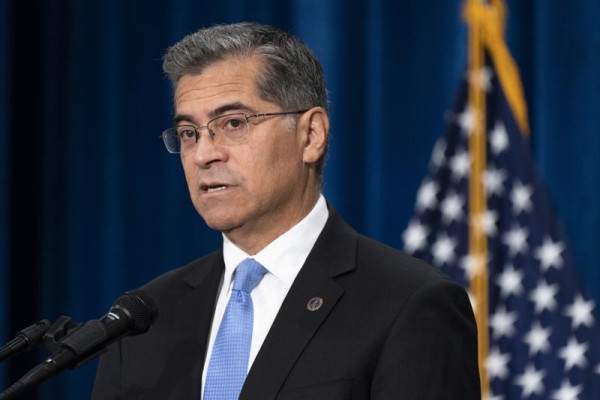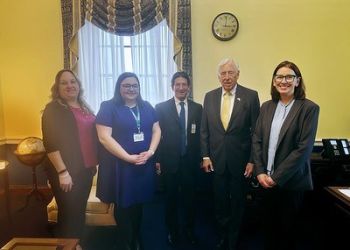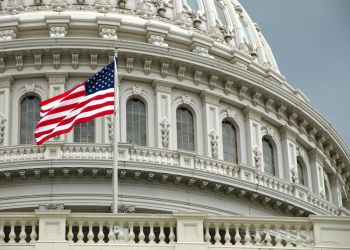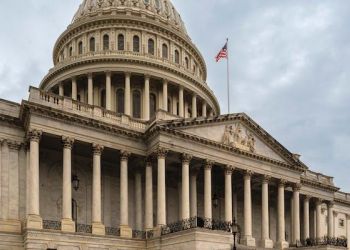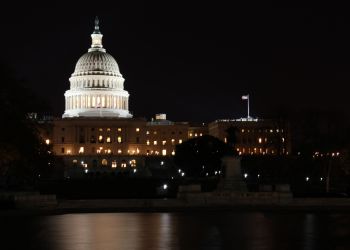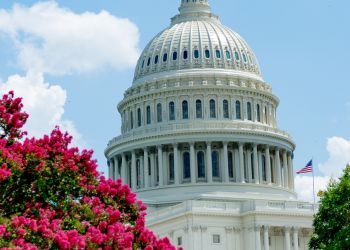Over the past several weeks, Department of Health and Human Services (HHS) Secretary Xavier Becerra testified in three different congressional hearings on the President’s Fiscal Year (FY) 2024 HHS Budget Request.
Secretary Becerra first testified on March 22 before the Senate Appropriations Subcommittee on Labor, Health and Human Services, Education, and Related Agencies (L-HHS). He highlighted recent successes of the Biden Administration, including record numbers of insured Americans due to the Affordable Care Act marketplaces and the newly implemented $35 per month insulin cap through the Inflation Reduction Act. Secretary Becerra noted that the FY 2024 budget allows for progress towards HHS’s goal of moving America from an “illness care system” to a “wellness care system” with significant investments in prevention, preparedness, Medicare and Medicaid, childcare, community health centers, and more.
In her opening remarks, Subcommittee Chair Senator Tammy Baldwin (D-WI) emphasized that many aspects of the HHS budget proposal impact Americans across the country and highlighted her hopes for bipartisanship during funding debates. Senator Baldwin discussed issues including substance use and mental health services, workforce development, biomedical research, emergency preparedness, and public health infrastructure and stated, “there is no way to make progress on these fronts without steady increases in nondefense priorities, like we have worked together to provide in recent years regardless of which party controlled the Congress.” Senator Baldwin mentioned health equity and public health programs in the aftermath of COVID-19, emphasizing the need to invest in vaccine preparedness and medical countermeasure development to improve readiness for the next crisis. Senator Baldwin said she hoped to hear a plan from HHS to address maternal mortality, which recently increased by 40 percent and is 2.6 times higher for Black women. She also raised the issue of unaccompanied minors at the southern border, a concern that was echoed by other members during the hearing.
Ranking Member Shelley Moore-Capito (R-WV) began her opening remarks with a nod to bipartisanship and the need to work in tandem with her colleagues across the aisle to find common ground, but did not think the President’s Budget reflected that saying, “unfortunately, this budget appears to be another bloated partisan request that simply spends too much money after the record level of spending that we’ve seen over the past few years.” Senator Capito said the budget should not be enacted as-is and indicated that an increase in discretionary spending by 13 percent is too high. She also took issue with what she deemed “controversial” items in the budget including repealing the Hyde Amendment, climate change-related activities, gun violence research, and increasing funding for family planning by “almost 80 percent.” She then highlighted items she would have liked to see in the President’s Budget, including an increase for Alzheimer’s research and programming and an increase toward diabetes prevention. Senator Capito said she was “surprised” to see increased funding for pandemic preparedness and response, saying that the nation has moved on from the COVID-19 public health emergency, noting the need to wind down the response and avoiding funding cliffs in the future. Senator Capito echoed Senator Baldwin’s emphasis on investments in biomedical research and indicated support for the Advanced Research Projects Agency for Health (ARPA-H) funding, the Cancer Moonshot, and substance abuse challenges. Senator Capito said substance abuse needs more attention in the budget, specifically fentanyl and opioids for treatment and prevention.
The following week, Secretary Becerra testified in front of two different House Subcommittees on President Biden’s FY 2024 budget proposal. In his testimonies, Secretary Becerra highlighted the importance of investing to grow HHS programs that contribute to the health and wellbeing of Americans and repeated themes from his earlier Senate testimony. On March 28, Secretary Becerra appeared in front of the House Appropriations Subcommittee on Labor, Health and Human Services, Education and Related Agencies. During this hearing, Subcommittee Charman Robert Aderholt (R-AL) expressed his party’s concerns about size of federal budget, saying it doubles down on “already out of control” government spending and therefore will contribute to high inflation rates. Throughout the committee hearing, other Republican members expressed similar concerns about federal spending. Additionally, multiple Republican members raised objections to federal funding for reproductive health care in Title X and gender affirming health care. Priority areas for questioning for many Republican members of the subcommittee included how HHS is prioritizing rural health, actions of the HHS Office of Refugee Resettlement in placing unaccompanied migrant children with safe sponsors, and the fentanyl crisis.
Ranking Member Rosa DeLauro (D-CT) spoke in her opening statement about how cuts to funding for HHS programs would have devastating impacts, including how reduced CDC funding would impact state and local health agencies. Priorities for several Democratic subcommittee members included Head Start programs for underserved children, maternal mortality rates and child health, and the healthcare workforce.
On March 29, Secretary Becerra testified in front of the House Energy and Commerce Health Subcommittee and faced many similar questions as he did the day prior. Republican members expressed concerns about investing more money into public health agencies, which they claim have lost the public’s trust during the pandemic. Republican members also asked Secretary Becerra about why the Centers for Medicare and Medicaid Services is not covering FDA approved Alzheimer’s medications and what HHS is doing about the fentanyl crisis. Democrats in the subcommittee focused their questioning on preparedness efforts post-pandemic and the mental health crisis in America. Both parties were interested in investing further into fraud, waste, and abuse prevention in federal health insurance programs.
